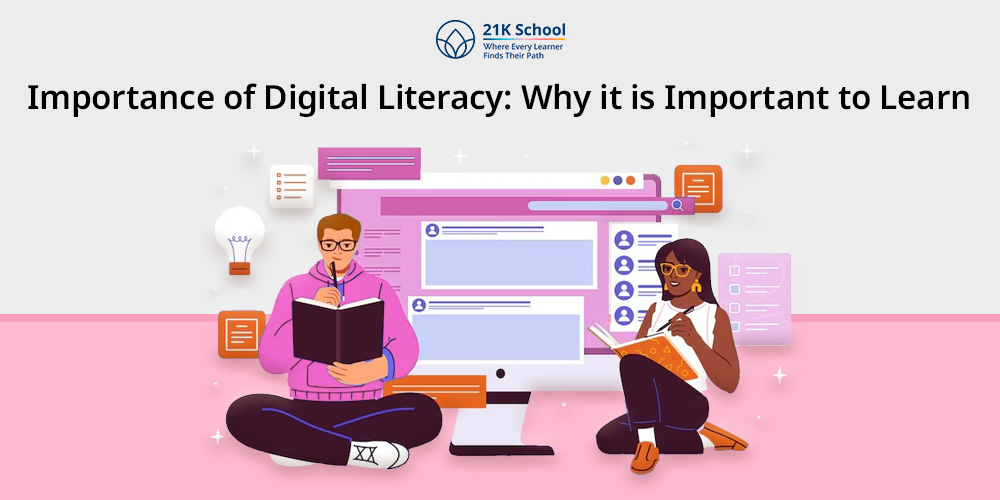
Wonder why digital literacy is important today?
The necessary skill that should be taught among children is digital literacy . It helps students characterise and visualise technology and technical information.
Technology has become important in society, that is what digital learning is about , being involved in technological resources and devices. Digital-based learning is for all fields of society and work and not just education .
Digital literacy skills are becoming a necessity for job based and professional growth. Digital literacy skills are interconnected with related fields of education because technology in education has contributed to this.
Contents
- What is Digital Literacy?
- Digital Literacy: Top 12 Importance
- 1. Digital Empowerment
- 2. Helps to Optimise Digital Content
- 3. Equal Digital Learning Opportunity
- 4. Online Safety
- 5. Social Inclusion
- 6. Lifelong Learning
- 7. Employment Opportunities
- 8. Technical Knowledge
- 9. International Collaboration
- 10. Facilitating Academic Achievement
- 11. Flexible Learning
- 12. Information Management
- Final Thought
What is Digital Literacy?
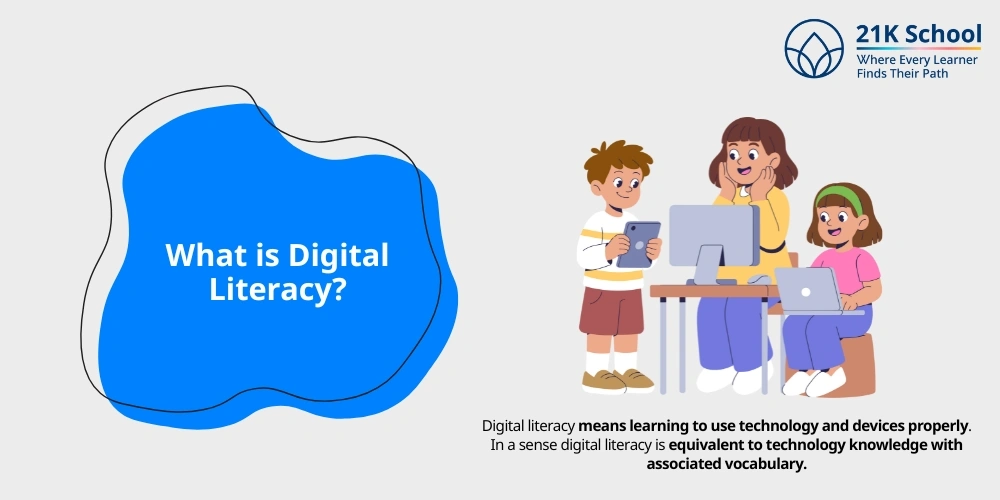
Digital literacy means learning to use technology and devices properly. What digital literacy means has evolved over time. In a sense digital literacy is equivalent to technology knowledge with associated vocabulary.
It’s all about digital literacy because everything these days is technology driven. So digital literacy should be taught early on for kids.
In a modern and developing society students need to be on top of the trends and know about technology and gadgets. The contribution of technology in education helps students learn better and think more easily.
Digital Literacy: Top 12 Importance
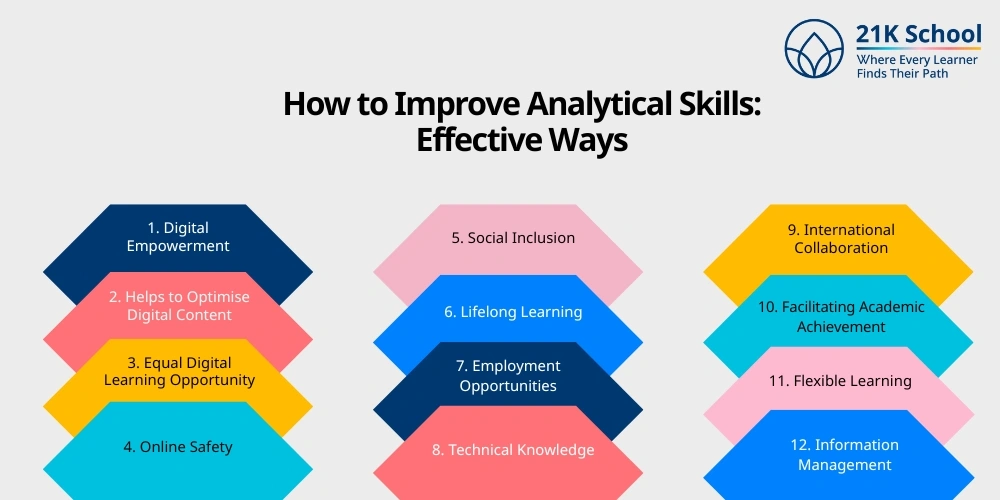
Like many know, technology is part of everyday life and technology trends are changing fast so digital literacy is important.
With Digital literacy we get more social flexibility, time/study habits , personalised education and academic success too. Here is why digital literacy skills are necessary.
1. Digital Empowerment
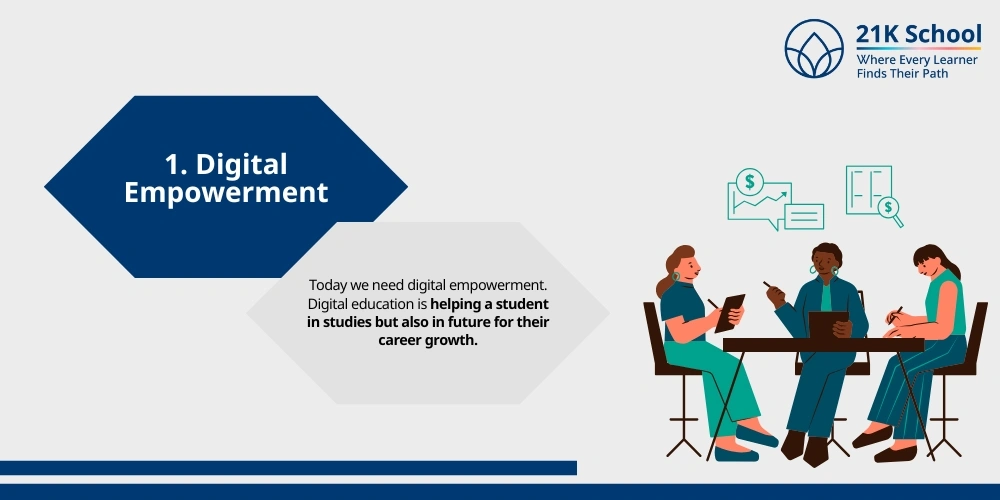
Today we need digital empowerment. Digital education is helping a student in studies but also in future for their career growth.
Digital literacy is the skillful and confident usage of digital tools or devices to use tools and devices. And this empowers people to do something that builds students confidence in the digital world which may be beneficial to them personally and/or professionally.
2. Helps to Optimise Digital Content
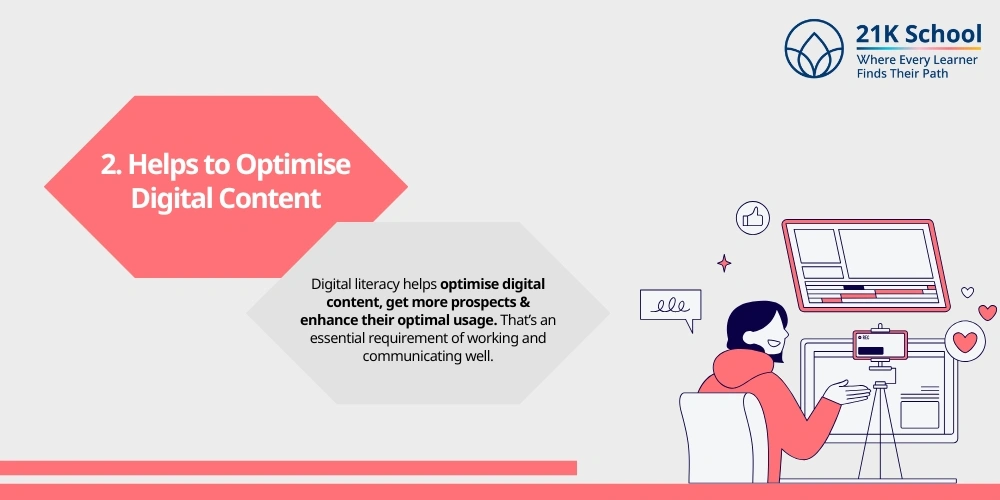
Digital literacy helps optimise digital content, get more prospects & enhance their optimal usage. That’s an essential requirement of working and communicating well.
Education and e-skills training are absolutely required to make online information productive which are indispensable part of digital literacy.
3. Equal Digital Learning Opportunity
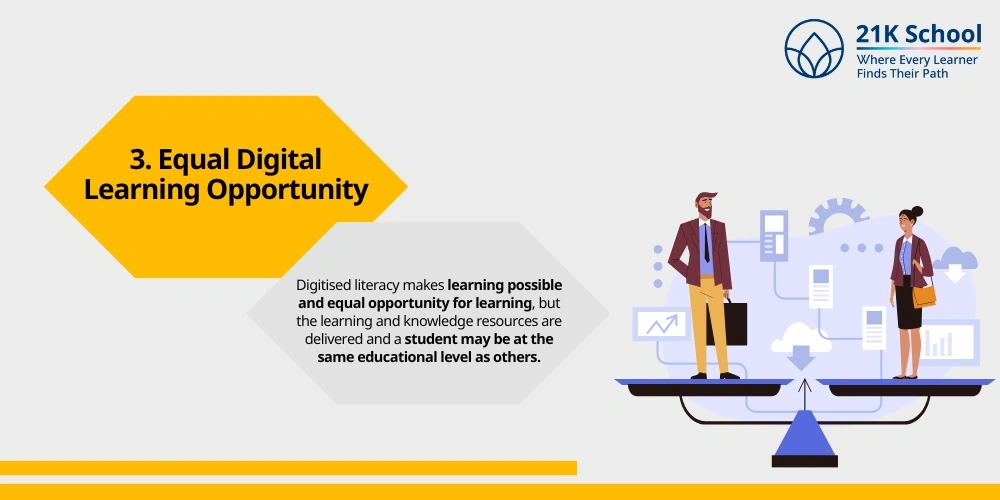
Digitised literacy makes learning possible and equal opportunity for learning, but the learning and knowledge resources are delivered and a student may be at the same educational level as others.
For this reason, learning digitally is not rooted in geography or socio-economics, due to which everyone can study equally.
4. Online Safety
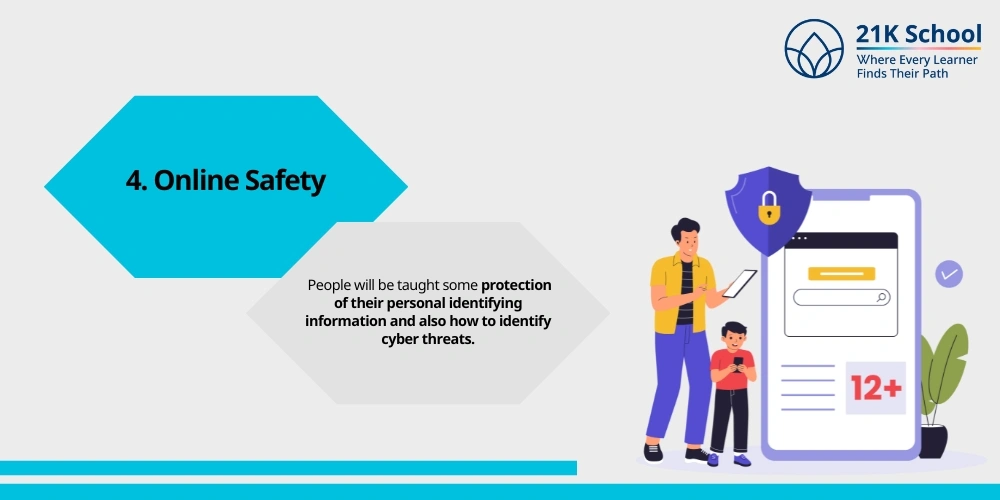
Digital literacy means also being trained on online safety. People will be taught some protection of their personal identifying information and also how to identify cyber threats.
All this prepares students for exploring the web responsibly and preventing unnecessary risk such as bullying or identity theft.
Bullying is more prevalent among children and cyberbullying is more perceptible. Keeping all of these threats in check allows us to use the technology better.
5. Social Inclusion
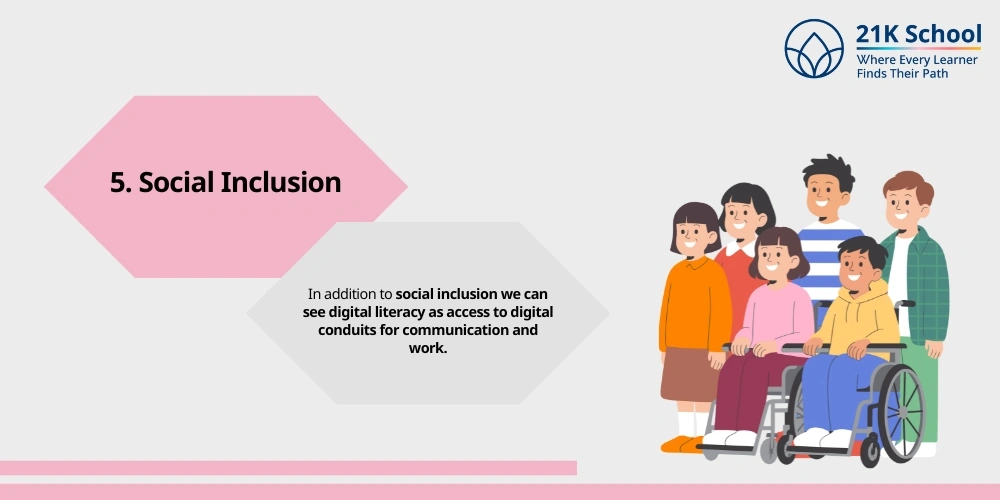
In addition to social inclusion we can see digital literacy as access to digital conduits for communication and work.
And this is where the positive externalities of digital literacy to equal opportunity would encourage people to participate in activities.
The upside to social inclusion is that the digitally literate person is given lots of chances to be more involved and have supportive citizens in many social activities as well as to be included.
6. Lifelong Learning
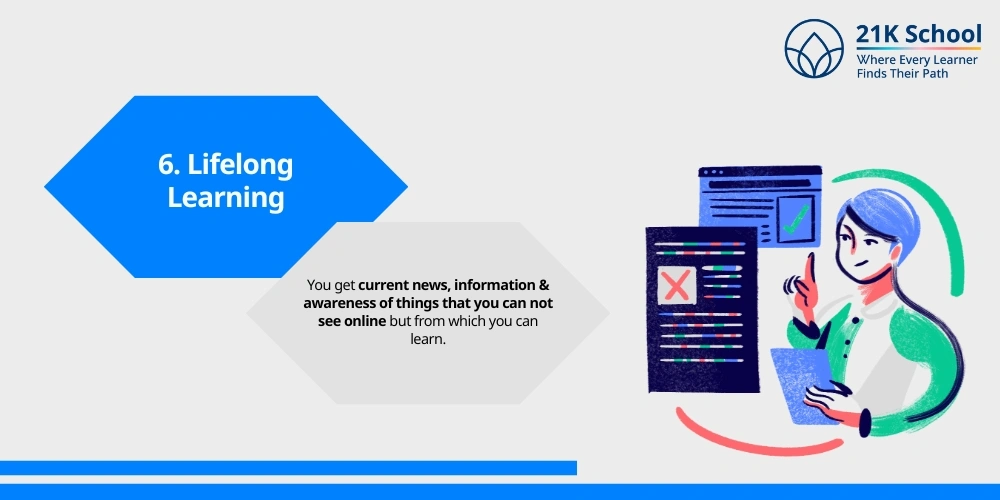
You get current news, information & awareness of things that you can not see online but from which you can learn.
Also, online resources and learning devices are given to internet students to become life long learners.
Explore lifelong learning .
7. Employment Opportunities
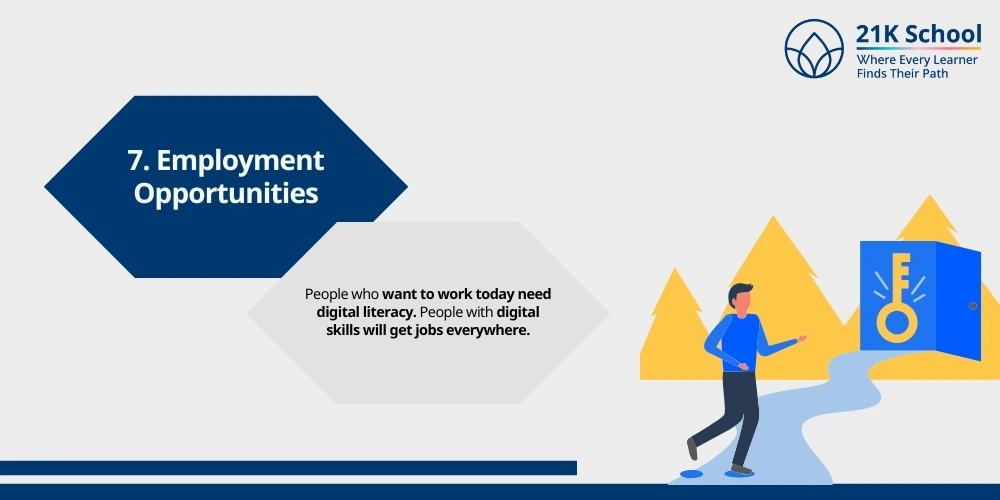
People who want to work today need digital literacy. People with digital skills will get jobs everywhere.
Most jobs/careers in the digital age require digital skills too. A digitally literate person could do pretty much any job anywhere, except technology.
8. Technical Knowledge
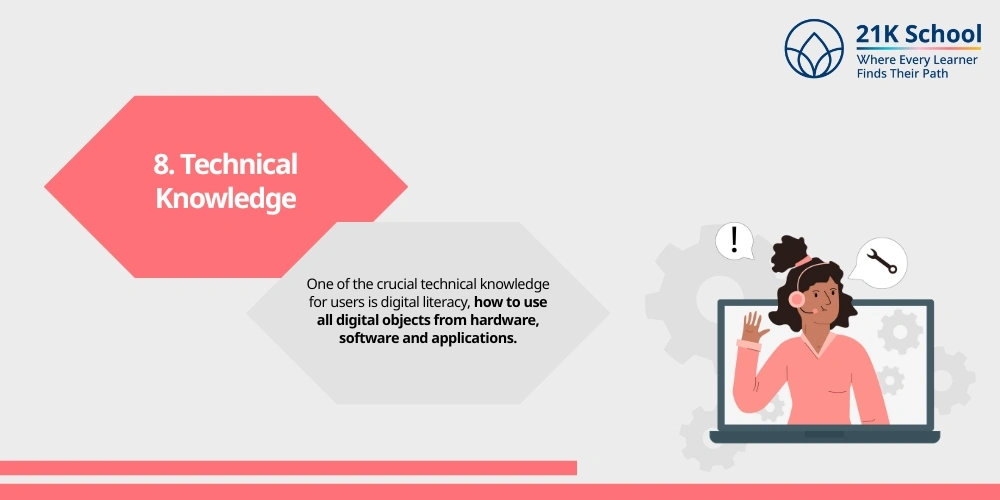
Today, in academia or banking, technical knowledge is very important so digital literacy is the most important.
One of the crucial technical knowledge for users is digital literacy, how to use all digital objects from hardware, software and applications.
9. International Collaboration
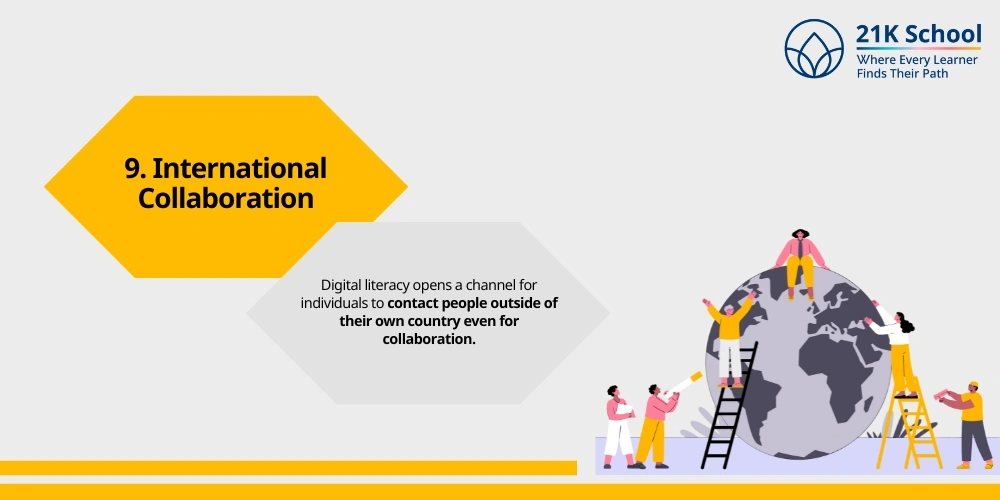
Digital literacy opens a channel for individuals to contact people outside of their own country even for collaboration . They could implement technologies globally and exchange ideas as well as work on global projects.
Students could take part in different countries in an international degree or continue with a degree process through an international agreement which teaches the students to collaborate.
10. Facilitating Academic Achievement
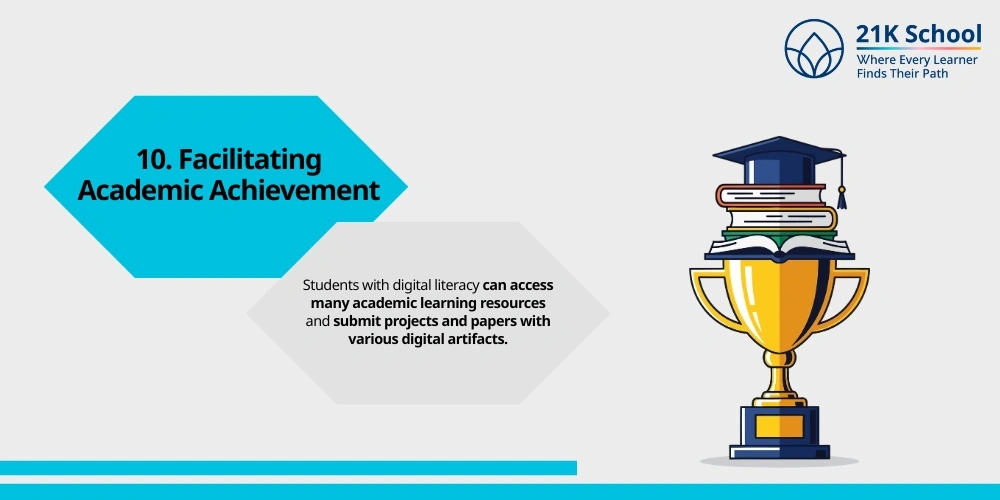
Students with digital literacy can access many academic learning resources and submit projects and papers with various digital artifacts.
So digital literacy can support students academically. Digital literacy gives children tools and software mastery which promotes flexible learning outcomes.
11. Flexible Learning
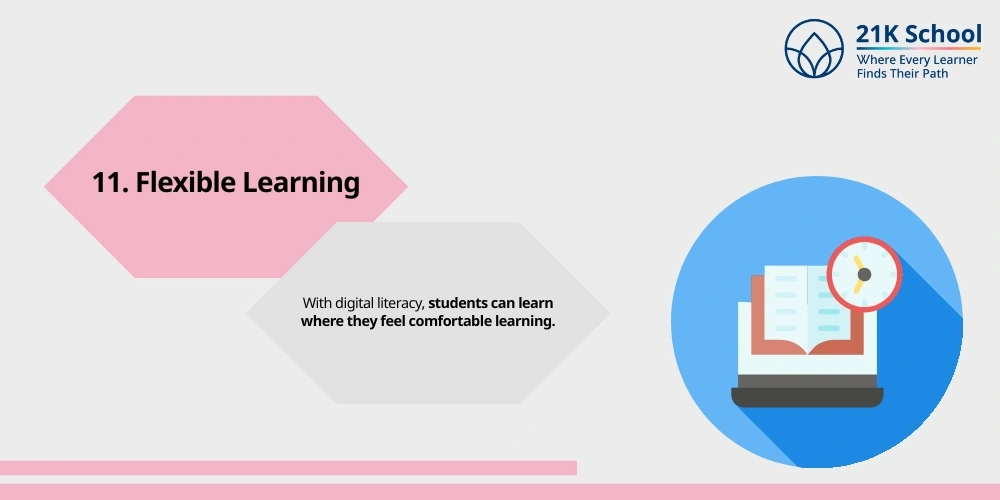
With digital literacy, students can learn where they feel comfortable learning.
And learning more comfortably leads to better learning and distance learning , studying when and wherever you want to – when done right.
12. Information Management
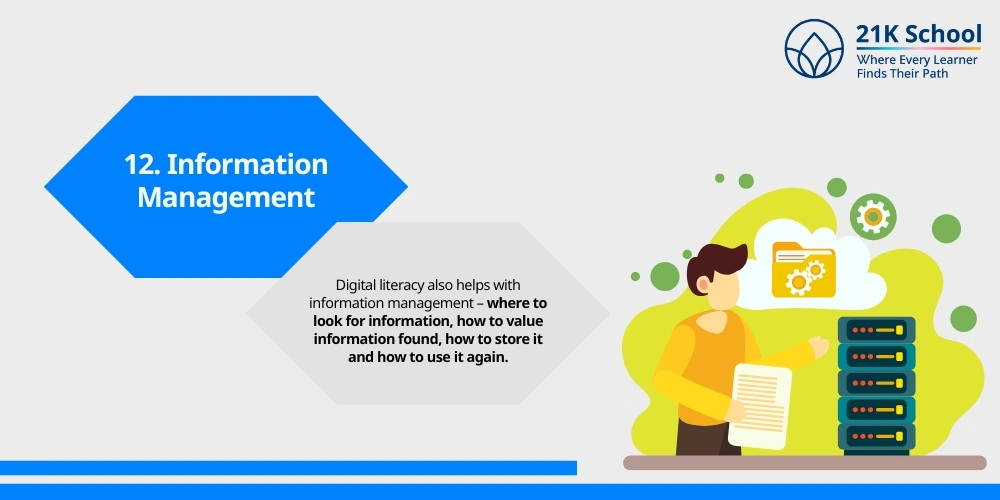
Digital literacy also helps with information management – where to look for information, how to value information found, how to store it and how to use it again.
You need that kind of information management for your brain and if someone can not figure that out they can not critical think in business or a professional way.
Final Thought
In the 21st century digital literacy is a survival skill. It helps a student study for an exam, but it makes teaching and learning fun too.
Also, lack of digital literacy will put these kids pretty much in a hole of social exclusion where they become underprivileged based on those criteria.
Safer online interaction and meeting and/or working with people from all over the world are other benefits of digital literacy that made it necessary today.
